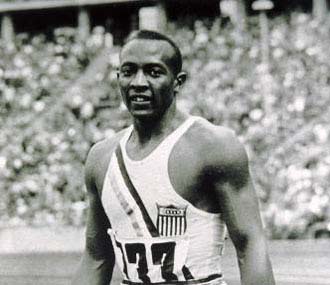On a rainy, misty Monday morning…
books, comics and animation, dining and cuisine, everyday glory, family and friends, food for thought, games, LEGO and Rokenbok, movies and TV, news and info, office antics, science and technology, style February 15th, 2010Monday – 15 February 2010
Welcome to the work week.
Yesterday afternoon/evening wound up being a lot of fun. SaraRules and I went to Rodizio Grill for dinner. Or, as we are fond of referring to it: “Meat o’clock.” Among their meat choices were rattlesnake sausage, elk and chicken hearts. And, of course, there was grilled pineapple – probably the only cooked fruit that I like. We also both indulged in capirinhas. It was all very tasty.
On the way home from dinner, we stopped at the in-laws’ for a few. Then we headed home for end-of-the-weekend relaxing. We watched Starship Troopers and Rocky Balboa. We both like Troopers (despite the fact that it only has tenuous ties to the book by Robert Heinlein) and Rocky Balboa, which I’d never seen, is one of SaraRules’ favorites. It was a good movie and wrapped up the Rocky franchise rather well.
![]()
![]()
![]()
![]()
![]()
![]()
![]()
![]()
![]()
Chew on This: Food for Thought – Black History Month
Today’s spotlight person is Jesse Owens
James Cleveland “Jesse” Owens was an American track and field athlete. The seventh child of Henry and Emma Alexander Owens was born in Alabama on September 12, 1913. “J.C.”, as he was called, was nine when the family moved to Cleveland, Ohio, where his new schoolteacher gave him the name that was to become known around the world. The teacher was told “J.C.” when she asked his name to enter in her roll book, but she thought he said “Jesse”. The name stuck and he would be known as Jesse Owens for the rest of his life.
Throughout his life Owens attributed the success of his athletic career to the encouragement of Charles Riley, his junior-high track coach at Fairmount Junior High, who had put him on the track team. Since Owens worked in a shoe repair shop after school, Riley allowed him to practice before school instead. His promising athletic career began in 1928 in Cleveland, Ohio where he set Junior High School records by clearing 6 feet in the high jump, and leaping 22 feet 11 3/4 inches in the broad jump. During his high school days, he won all of the major track events, including the Ohio state championship three consecutive years.
At the National Interscholastic meet in Chicago, during his senior year, he set a new high school world record by running the 100 yard dash in 9.4 seconds to tie the accepted world record, and he created a new high school world record in the 220 yard dash by running the distance in 20.7 seconds. A week earlier he had set a new world record in the broad jump by jumping 24 feet 11 3/4 inches. Owens’ sensational high school track career resulted in him being recruited by dozens of colleges. Owens chose the Ohio State University, even though OSU could not offer a track scholarship at the time. He worked a number of jobs to support himself and his young wife, Ruth. He worked as a night elevator operator, a waiter, he pumped gas, worked in the library stacks, and served a stint as a page in the Ohio Statehouse, all of this in between practice and record setting on the field in intercollegiate competition.
Owens’s performance at the 1936 Berlin Olympics has become legend, both for his brilliant gold-medal efforts in the 100-metre run (10.3 sec, an Olympic record), the 200-metre run (20.7 sec, a world record), the long jump (8.06 metres [26.4 feet]), and the 4 100-metre relay (39.8 sec) and for events away from the track. One popular tale that arose from Owens’s victories was that of the “snub,†the notion that Hitler refused to shake hands with Owens because he was an African American. In truth, by the second day of competition, when Owens won the 100-metre final, Hitler had decided to no longer publicly congratulate any of the athletes. The previous day the International Olympic Committee president, angry that Hitler had publicly congratulated only a few German and Finnish winners before leaving the stadium after the German competitors were eliminated from the day’s final event, insisted that the German chancellor congratulate all or none of the victors. Unaware of the situation, American papers reported the “snub,†and the myth grew over the years.
Just before the competitions Owens was visited in the Olympic village by Adi Dassler, the founder of Adidas. He persuaded Owens to use Adidas shoes and it was the first sponsorship for a male African-American athlete.
On the first day, Hitler shook hands only with the German victors and then left the stadium. Olympic committee officials then insisted Hitler greet each and every medalist or none at all. Hitler opted for the latter and skipped all further medal presentations. On reports that Hitler had deliberately avoided acknowledging his victories, and had refused to shake his hand, Owens recounted:
When I passed the Chancellor he arose, waved his hand at me, and I waved back at him. I think the writers showed bad taste in criticizing the man of the hour in Germany.
He also stated: “Hitler didn’t snub me—it was FDR who snubbed me. The president didn’t even send me a telegram.” Jesse Owens was never invited to the White House nor bestowed any honors by Presidents Franklin D. Roosevelt (FDR) or Harry S. Truman during their terms. In 1955, President Dwight D. Eisenhower acknowledged Owens’s accomplishments, naming him an “Ambassador of Sports.”
After the games had finished, Owens was invited, along with the rest of the team, to compete in Sweden. However he decided to capitalize on his success by returning to the United States to take up some of the lucrative commercial offers he was receiving. American athletic officials were furious and withdrew his amateur status, ending his career immediately. Owens was livid: “A fellow desires something for himself,” he said.
With no sporting appearances to bolster his profile, the lucrative offers never quite materialized. Instead he was forced to try to make a living as a sports promoter, essentially an entertainer. He soon found himself running a dry-cleaning business and then even working as a gas station attendant. He eventually filed for bankruptcy but, even then, his problems were not over and in 1966 he was successfully prosecuted for tax evasion. At rock bottom, the rehabilitation began and he started work as a U.S. “goodwill ambassador.”
Jesse Owens died from complications due to lung cancer on March 31, 1980 in Tucson, Arizona. Although words of sorrow, sympathy and admiration poured in from all over the world, perhaps President Carter said it best when he stated: “Perhaps no athlete better symbolized the human struggle against tyranny, poverty and racial bigotry. His personal triumphs as a world-class athlete and record holder were the prelude to a career devoted to helping others. His work with young athletes, as an unofficial ambassador overseas, and a spokesman for freedom are a rich legacy to his fellow Americans.”
Stray Toasters
- I just finished writing the technical equivalent of Skippy’s List for an employee.
- Fashion Week’s Latest Trend? Plus-Size Models
- Washington to Give Microsoft a $100 Million Annual Tax Cut… and Possible Amnesty on Past Tax Evasion

- LEGO Launches 10 Board Games
- By way of
: Would You Have Spotted the Fraud? - Old sweaters reborn as mittens
- Top 10 Google Settings You Should Know About
- Four-Color Coverage now has its first “real” post.
Namaste.
Leave a Reply
You must be logged in to post a comment.

